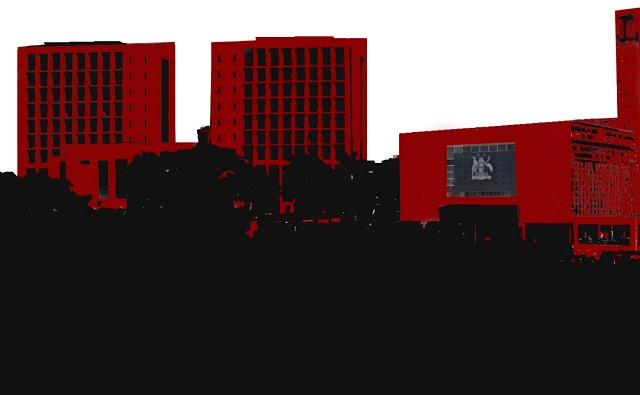
Revealing the networks of people with power
Kampala, Uganda | THE INDEPENDENT | In the April 30-07 issue of The Independent, Andrew Mwenda; in his column, wrote an article entitled “Paved with good intentions: How Western interventions in African affairs, even when well intentioned, produce bad results.”
In that article, Mwenda became possibly the first journalist in Uganda to use the expression “shadow state” in black and white.
Mwenda wrote: “Who is responsible for the killings that happened during last year’s riots? Who is responsible for the continued abduction of opposition activists? To my knowledge, there is a shadow state conducting these operations.”
He added: “Nearly all the major leaders of mainstream security institutions of the state are unaware and disapprove of what is going on.”
How is what Mwenda was saying possible? That is what most discerning readers must have asked since.
Now a renowned professor of democracy and African studies, Nic Cheeseman, has written about two new studies about what Mwenda was referring to, the shadow state.
The shadow state is best understood as an informal network of domestic and international actors, most of whom are unelected or are not operating in their official capacity, who collude to assert and maintain political, social and economic control for their own benefit.
The shadow state activities focus more on the monopolisation of political and economic power in the hands of a small number of elected and unelected officials.
“In this sense, almost all countries across the globe feature some degree of a shadow state,” says Cheeseman, “In the United States, for example, the term ‘deep state’ has come to be used to refer to the undue influence that lobbyists and the military–industrial complex can wield within the American political system.”
“These powerful private individuals capture public political institutions and subvert them through a system that is often more powerful than the official institutions. The shadow state is inherently antidemocratic and antidevelopment,” Cheeseman writes.
Cheeseman’s writing, published in an essay entitled ‘Shadow states are the biggest threat to democracy in Africa: fresh reports detail how’ published on the online intellectual journal, The Conversation, on Sept.15, are based on two reports about the shadow state and its threat to democracy in Africa.
The first report is published by Ghana’s Centre for Democratic Development. It focuses on the capture and subversion of democratic institutions in Benin, Ghana, Kenya, Mozambique and Nigeria.
Cheeseman says studies in these countries show that ruling parties can “hijack” democracy and appropriate its benefits and that they do this by capturing the institutions of democracy itself. This includes electoral commissions, judiciaries, legislatures and even the media and civil society.
The second report was curated by Democracy in Africa; an online journal that encourages academics to share their work on African politics. This report looked at how unelected networks can infiltrate and subvert state structures through emergence of shadow states. Studies were done in the Democratic Republic of Congo (DRC), Uganda, Zambia and Zimbabwe.
The researchers describe how the shadow state grabs the power to make important political and economic decisions from democratic institutions, such as the parliament into the hands of a ‘power elite.’
The power elite meanwhile are described as “a well-structured network of people with privileged access to the inner circle of power.” The privileged may be located in government, state institutions, state-owned enterprises (SOEs), private businesses, security agencies, traditional leaders, family networks and the governing party.
“They are dangerous because their activities undermine democratic accountability and divert the focus of government to meeting the needs of relatively small networks of privileged individuals,” the researchers say.
“There appears to be a clear relationship between the presence of a shadow state and the level of poverty,” the researchers say, “The extent to which this correlation holds, however, depends on the relative power of the shadow state, the breadth of its operations and the proportion of state resources it siphons off and secures outside of the country through international networks.”
According to the researchers, their analyses of the DRC, Uganda, Zambia and Zimbabwe reveal that the shadow states varies from country to country but usually features the president at the apex.
The shadow state usually runs through the president or prime minister, as well as through senior civil servants, such as permanent secretaries (or their equivalents), who run ministries.
The need to generate resources both for personal enrichment and to fund election campaigns also means that it is common to find business people and central bank officials in shadow state networks. Similarly, protecting members of the shadow state from prosecution for illegal activities ensures that senior members of the judiciary are usually co-opted.
Also, because shadow states often emerge where there is lack of trust, presidents tend to surround themselves with family members on whose loyalty they can depend.
 The Independent Uganda: You get the Truth we Pay the Price
The Independent Uganda: You get the Truth we Pay the Price



Wow… Mwenda must be onto something…….. keeping eyes on the ball…… hoping cheeseman is not Besigye or Winnie.
This finally is an article from Mwendas paper that is highly factual and not simply pontificating and making wild allegations.
A well researched piece of work with reference to the work of prof Cheeseman to Extrapolate Uganda politics . You do not go far to see the neo-patrimonialism – absolute ruler using his power to amend the instruments of governance- courts, media parliament and civil society.